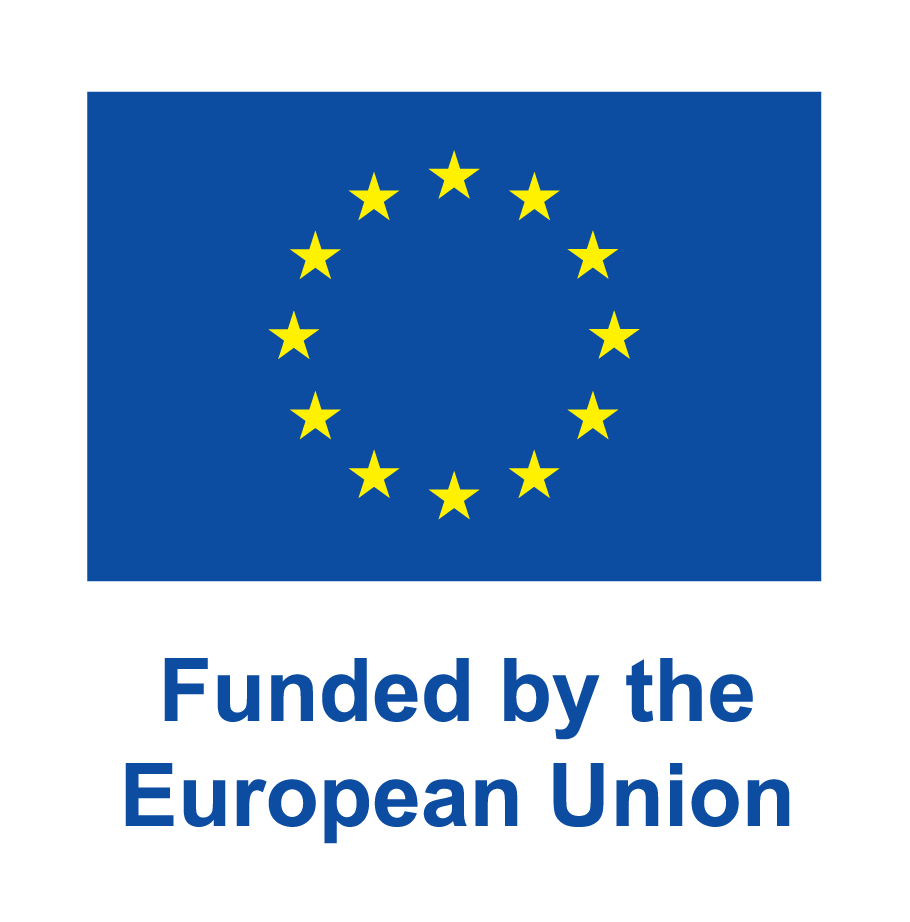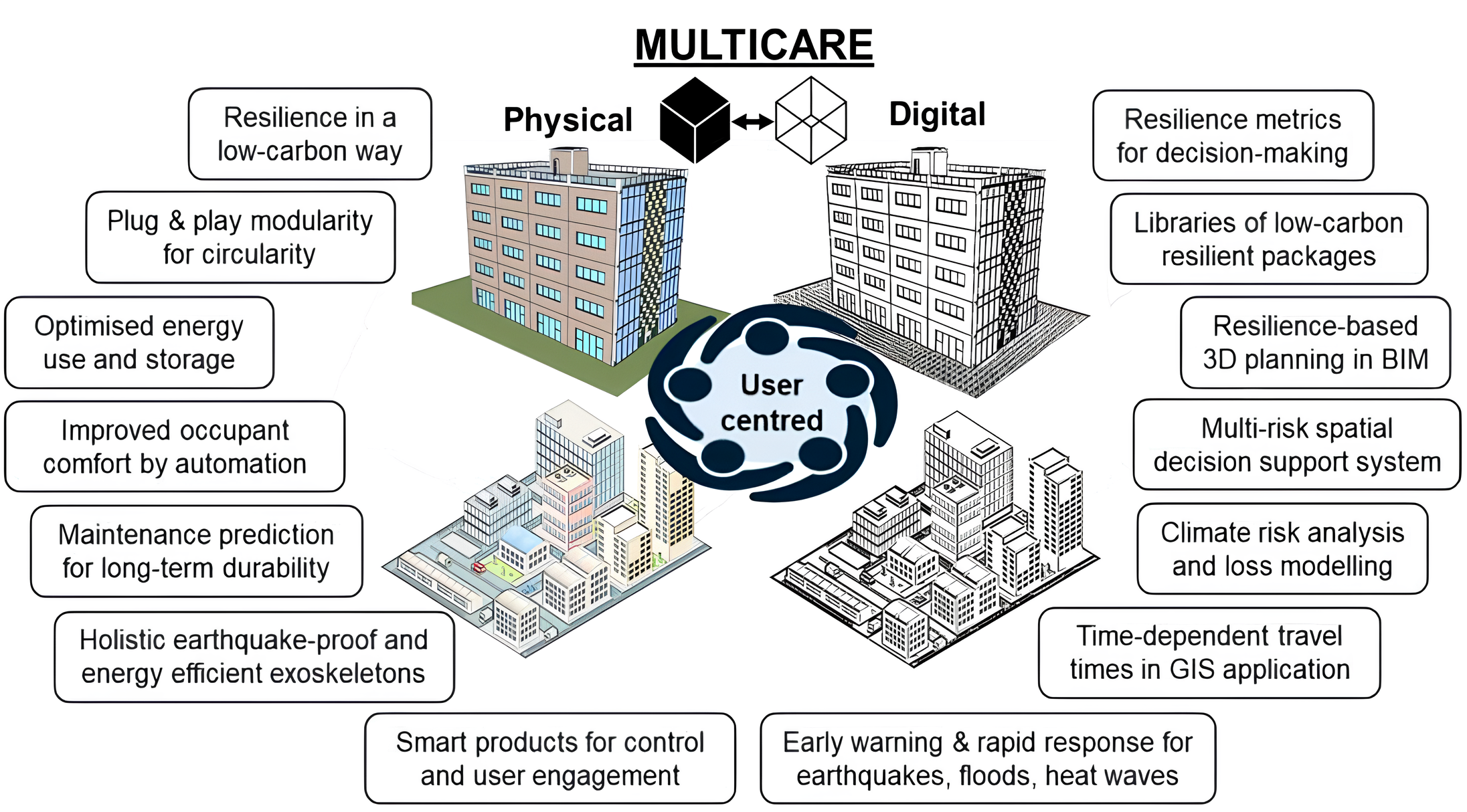MULTICARE
MULTICARE - Multi-hazard low-carbon resilient technologies and multi-scale digital services for a future-proof, sustainable & user-centred built environment
ID Call: HORIZON-CL5-2022-D4-02 Designs, materials and solutions to improve resilience, preparedness & responsiveness of the built environment for climate adaptation (Built4People)

Sapienza's role in the project: Other beneficiary
Scientific supervisor for Sapienza: Stefano Pampanin
Department: Structural and Geotechnical Engineering
Project start date: October 1, 2023
Project end date: September 30, 2027
Abstract:
The built environment is ill-prepared for more frequent and increasingly intense climate-related extreme events. These cause severe socio-economic losses and adversely affect public health. Recent scientific and technological advances in the construction industry provide timely solutions for improving the resilience of buildings to specific hazards, but these are often not cost-effective or eco-friendly. There is a lack of frameworks for assessing climate resilience, making it challenging to develop optimal solutions for multi-hazard scenarios. MULTICARE will address this challenge by developing innovative multi-criteria decision-support frameworks and providing plug-and-play low-carbon resilient technologies for improving the multi-hazard resilience of our built environment in a cost-effective, reliable and sustainable manner. A suite of multi-disciplinary digital services and tools will be developed for multi-hazard resilience assessment, design, operation and management across multiple scales (material, component, building, neighbourhood/district). This will enable stakeholders to make more informed decisions to select materials/solutions and build resilient supply chains, even in the case of cultural heritage buildings. We will demonstrate our results in large-scale pilots (3 buildings, 4 neighbourhoods/cities) in different countries with diverse conditions. A user-centred, inclusive and participatory approach will be consistently implemented at all stages of the project for citizen engagement and for extending the durability of MULTICARE impact. To achieve the project goals, MULTICARE combines 21 partners covering the whole technical value chain required for solutions in resilient and sustainable buildings. The Consortium includes experience in social sciences, user engagement and training. The Consortium will support clustering activities with other projects aimed at sharing knowledge, and experience, and raising public awareness of climate resilience.

The main contribution of Sapienza within the MULTICARE consortium primarily focuses on the development of innovative high-performing structural/non-structural systems to ensure resilience in the multi-risk approach proposed by the project. These systems will also be based on eco-friendly materials. In consideration of this latter point, the research activities conducted at Sapienza University will primarily concentrate on the development of timber-based systems. More specifically, the research activities carried out by the group also involve conducting experimental tests to assess and validate the effectiveness of the proposed solution. Lastly, the group will focus on drafting guidelines to support industry, and practitioners, in the design and implementation of resilient structural and non-structural systems for the built environment. Additionally, the Sapienza group will be involved in project management and coordination operations.
